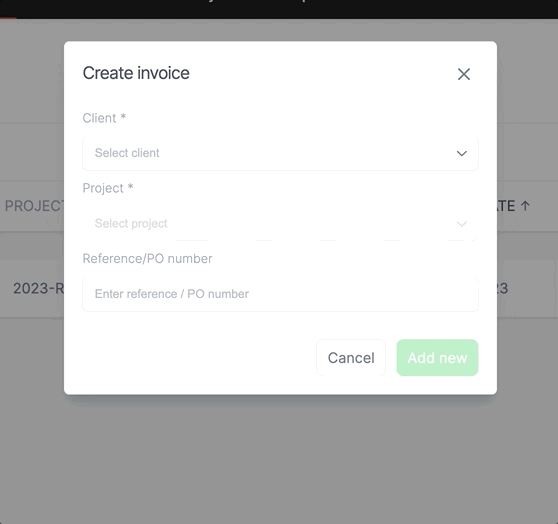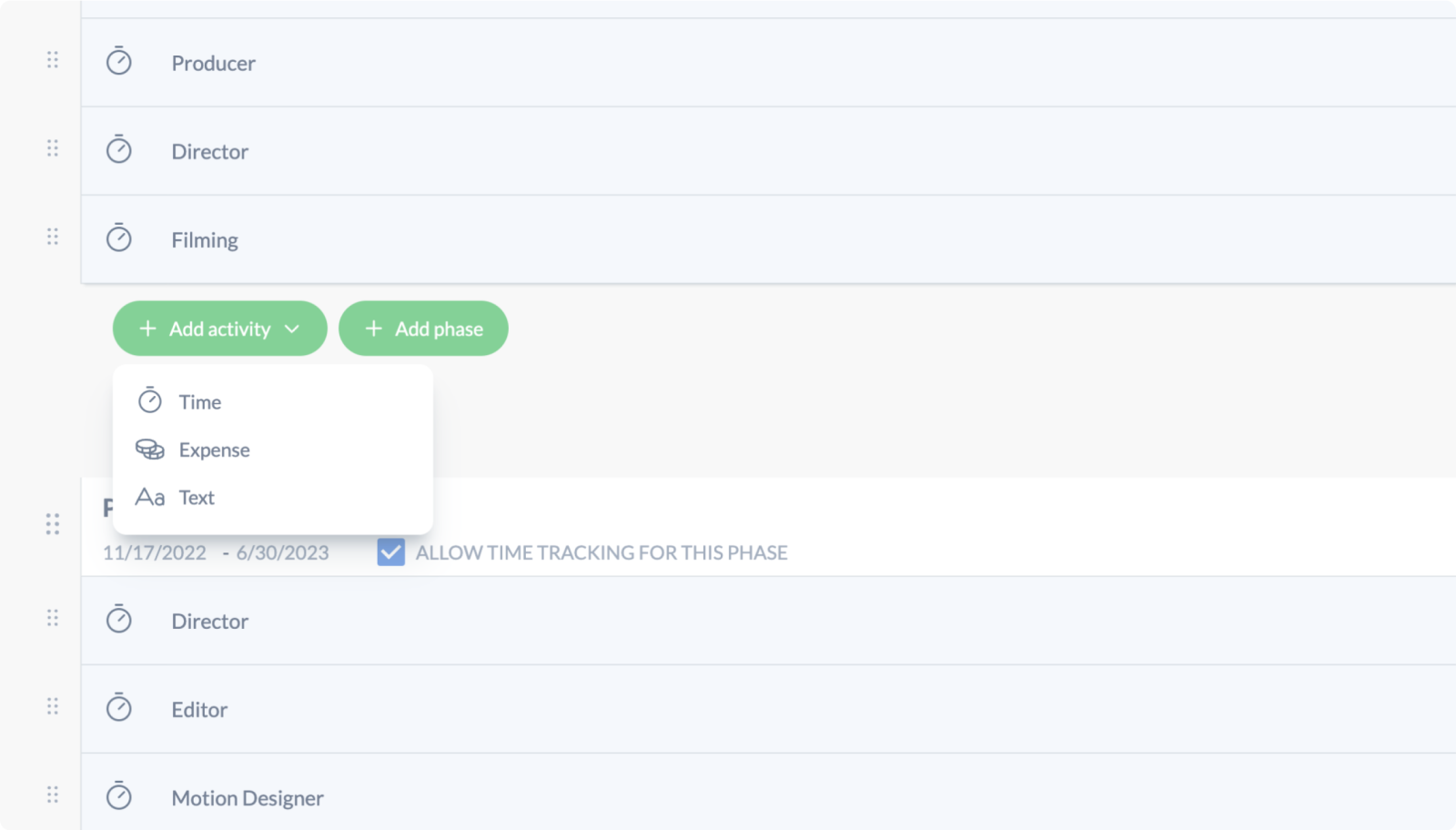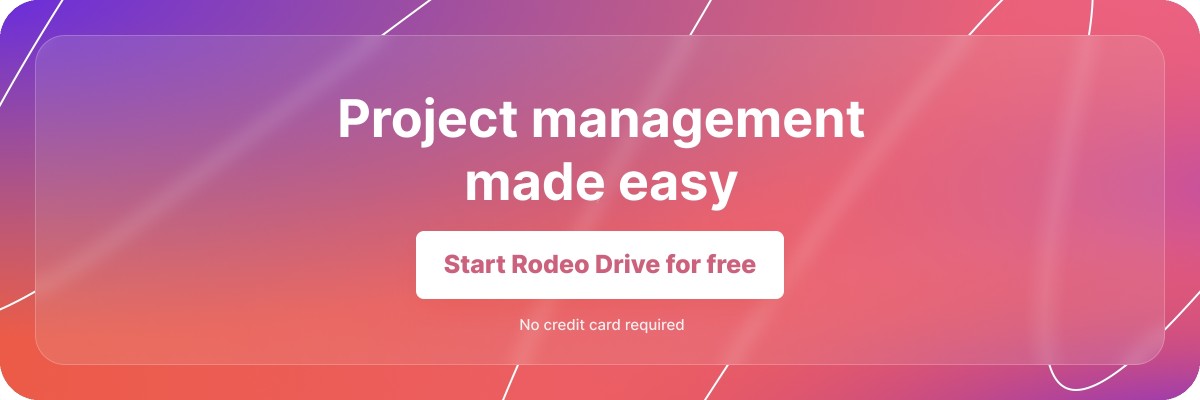How to Start an Agency: Best Practices From Experts
Let’s face it — starting an agency is no easy feat.
Managing a team, onboarding clients, and overseeing revenue and cash flow are just three of the main responsibilities that many agency owners have on their plates. And because many agency founders have a background in creative work, the mundane, administrative side of agency management can be a challenge.
If you’re a freelancer considering making the jump to starting an agency, or if you’ve already decided to take the leap, this article is here to help you out.
We’ve spoken with a couple of agency founders to bring you a list of best practices on how to start an agency of your own. Let’s get started.
Understanding the different types of agencies
An agency is a business that does business for another company, usually services like advertising, marketing, public relations, or web development. The idea is that by hiring an external agency, the company can get more done without having to expand its internal team.

In short, it’s a more efficient way of getting work done. If you have experience with freelancing and maybe you’re looking to expand and structure your offerings to appeal to a wider audience, you may be looking to start an agency.
If you’re unsure of where your skills fall, here’s a list of some of the most common types of agencies out there:
- Digital marketing agency
- Advertising agency
- Content and Search Engine Optimization (SEO) agency
- Public relations agency
- Web development agency
- Creative agency
- Influencer marketing agency
- Social media management agency
- Full-service agency
If you’re looking to offer several of these services, then you may want to consider starting a full-service agency. Full-service agencies offer a comprehensive set of services, usually handling entire advertising or marketing campaigns from strategy development and planning to execution across multiple channels.
Alternatively, if you feel your skills are more niche and industry-specific, then you may want to consider opening a boutique agency with a more limited list of service offerings.
Best practices for starting an agency
Starting your own agency can be challenging, and it can be difficult to navigate alone. That’s why we’ve spoken to two successful agency founders to help you get set up for success.
Below, you’ll find insights from Jasey Tielen, Co-Founder and COO at Bonana. Bonana offers three categories of services — strategy, digital, and growth — which include a range of projects from branding to website-building as well as tech stack optimization.
We also spoke with Graceanne MacDonald, Co-Founder of Storybook Marketing. Storybook is a full-service demand generation agency with a primary focus on B2B SaaS. The firm specializes in tech stack optimization and alignment between sales and marketing.
Both Tielen and MacDonald started their agencies in early 2023, so they’ve recently experienced the ups and downs that come with starting an agency.
Let’s dive into some of their tips for those just getting started:
Start by building your personal brand
If you’re looking to start an agency sometime in the future, you can start today by growing your own skill set right now. After all, for companies to want to work with your agency, you’ll need to have enough proven expertise in your field for them to purchase your services.
But skill sets aside, growing your personal brand is another important first step — and one you can start right now.
“If you’re thinking about going out on your own, building your personal network and personal brand is so so so important. Think about what it is you want to be known for within your network,” MacDonald says.
As we’ll discuss later on, your network is often your most valuable asset when you’re first getting started, so establishing yourself as a respected authority within your community network is crucial.
Luckily, doing so is arguably easier than ever thanks to LinkedIn. Introducing thought leadership to your LinkedIn feed or regularly contributing to posts by others in your field are great ways to get your name out there.
Be a differentiator
Starting an agency can be difficult due to the sheer number of agencies out there. With such a saturated and competitive market, finding ways to stand out is a must.
Having skills that enable your agency to meet a need not already met within the current agency landscape is an important part of differentiating yourself from competitors.
“There are so many marketing and digital agencies. 90% of the time, marketing agencies don’t have a large business impact. Think about what makes you different and how you can add value for customers,” Tielen says.
In fact, devising out-of-the-box solutions to the problems many in-house teams were facing was a key reason why MacDonald and her co-founder decided to start Storybook.
“My co-founder and I had gone through a few rounds of building and rebuilding teams/programs in-house. And after a while, we began to realize that everyone was facing the same, universal challenges, but there weren’t many options in the market to sustainably, and uniquely solve them,” she says.
“But just because the challenges were the same, we didn’t feel like the solutions should be. Every company, team, and program is unique — and we wanted to build an agency model that allowed us to understand programs uniquely, with things like diagnostic-level audits of performance data and systems architecture,” she adds.
Leverage your network to acquire clients
Once you’ve decided to take the plunge and start your own agency, the next step is acquiring new customers. This can be challenging, especially when you only have your personal track record to show for your work.
Both Tielen and MacDonald onboarded their first clients by leveraging their personal networks — a practice that’s common among agency owners who are just getting started.

Whether or not you realize it, your network is likely ripe with potential clients in your target market. Using personal networks to acquire new business early on allows you to leverage the credibility that you’ve built from existing relationships or past work together.
Plus, once you produce good work for these initial projects, many agencies see their client pool begin to grow through referrals and word-of-mouth recommendations.
Determine your business model
Determining your business structure and pricing model is an important part of starting any new agency. The good news is, there are several ways you can structure it for success.

Here’s an overview of the three main pricing models most agencies opt for:
- Flat fee: Also known as a project-based pricing model, this involves setting a fixed price for the entire project, regardless of the time and resources involved by the agency. The benefit of this model is that the project price is clear for the client.
- Retainer: This option involves a recurring monthly payment for a set bundle of services, either guaranteeing a certain number of hours spent on the project or the production of specific deliverables. The main benefit of a retainer is that it guarantees a consistent and stable source of income for your agency.
- Hourly rate: In this structure, the client is charged based on the number of hours your team spends working on the project. Each team member usually has a set hourly rate that’s determined by their skill level and experience. The advantage of the hourly rate model is that if a project takes far longer than expected, you can charge the client accordingly.
Related: Pricing Projects Right: 7 Tips From Experts
Define your team structure
Once your firm has more work than a single agency owner can handle, you’ll need to start building out your team. The question is, how should you structure this team?
While a new business owner may want to scale the size of their team quickly, this may result in an unnecessary waste of resources. Instead, some teams opt to start small to avoid scaling their team beyond their actual workload capacity.
If you’re looking to start small, you’ll want to add only the most essential positions to your team. This will depend on how much work your agency has in its pipeline, but if you own a content marketing agency, you’ll probably want to start by hiring a content writer, for instance.

However, this can be a challenge for some since early agencies have a wide range of needs that tend to require more generalist talent.
For example, Tielen said Bonana needed early team members who were willing to take on more administrative tasks like invoicing clients on top of their normal project work. He found it difficult to hire employees with specific job descriptions when really, there was a wide range of tasks required of early employees.
If this is the case for your agency, you may want to start by recruiting someone with robust agency experience to your team to help manage all of these miscellaneous tasks that don’t neatly fall within a single job description.
That said, a project management software tool is a great resource for early-stage agencies, as solutions like Rodeo Drive help automate some of your otherwise time-consuming financial processes.
For example, Rodeo Drive enables users to create invoices based on their budget, estimate, actuals, or a custom amount. In just a few clicks, you’ll have a fully customizable invoice to send to clients.

Creating invoices in Rodeo Drive helps ensure you’re paid on time
This makes it easy for team members with little financial management experience to help carry some of the administrative workload.
Also read: How to Find and Adopt a Successful Marketing Team Structure
Hire strategically
After you’ve decided how you want to structure your team, finding the right people for those roles is a whole separate obstacle.

For Tielen, finding the right employees has been one of his biggest challenges in starting Bonana. Like many agency founders, Tielen has turned to freelancers to meet Bonana’s staffing demands more efficiently.
While Bonana has around 9 full-time employees, the team keeps around 25-30 freelancers around to help out when needed. This way, if there’s a specific question they have about a particular project, they can bring on a highly specialized freelancer to answer those questions and help out.
As we’ve already discussed, you’ll want to avoid scaling your team beyond what’s necessary. Devising a plan only to hire when your team reaches certain milestones — and bringing on freelancers to help out when you’re not quite ready for a full-time person — might be a strategy to consider.
Related: The Ins and Outs of the Strategic Planning Process
Don’t be afraid to update your service offerings
Starting your own business will inevitably involve a lot of trial and error. You can’t be afraid to evolve as you learn what works and what doesn’t.
Learning to adapt to change has been one of MacDonald’s biggest challenges in starting Storybook.
“The world is continuously changing, and you need to constantly be reading the room, adapting your services and potentially even your approach to those services if you want your business to thrive,” MacDonald says.
The reality is that your expectations won’t always align with reality. Your preferences for certain types of services you want to offer might not be in line with market trends or what’s in demand.
“One of the hardest parts of this for us was reconciling what kind of services we thought we’d offer when we first started out with what we’re offering now,” MacDonald adds.
Finding success and sustaining it for the long term requires your team to evolve. Staying stagnant might leave you falling behind competitors. Don’t be afraid to take on new services — as long as your team has the skills to complete those new projects.
Utilize the right tools
There’s a reason why one of Bonana’s main service offerings is helping teams optimize their tech stack. The tools you use to manage your projects are super important.
Without a strong tool to keep your project work organized, you’ll struggle to meet deadlines and produce deliverables as your organization grows.
Luckily, there’s a wide range of project management software tools out there to help your team’s workflows move properly. One of these tools is Rodeo Drive — a software solution built specifically for creative agencies to take the headache out of managing the financial side of projects.

Rodeo Drive helps you price your projects right by guiding you through the budget creation process
Rodeo Drive’s financial management features help you track budget spending as your project progresses. As your team records their time within the tool, your budget will update automatically to reflect the amount you’ve already spent. This way, you can identify budget overruns before they impact your deliverables.
Creative agencies will also find Rodeo Drive’s estimating, invoicing, and expense-tracking features useful as well. Just imagine how much time you’ll save by automating some of your financial management processes.
Be prepared to encounter challenges
If there’s one thing for certain, starting your own business isn’t a cakewalk. Especially as you begin to expand your team, your responsibilities to your clients and your team will only continue to grow.
Unfortunately, many people looking to start an agency aren’t fully prepared or aware of the challenges that come with it.
“Frankly, I think a lot of the content out there today encouraging people to go start their own thing by just taking a bet on themselves is irresponsible and just plain wrong. Truth is, building your own business is really, really hard. The goalposts are constantly moving,” MacDonald says.
In other words, you’ll want to make sure that you’re fully ready for the ups and downs that come with starting an agency before you decide to take the plunge. That isn’t to say that the journey won’t be extremely rewarding, but it will surely come with setbacks.
Takeaway
Well, there you have it! The list of our top expert tips on how to start an agency.
But remember, before taking the leap and founding your agency, you’ll want to ensure that you’ve specialized enough and have a strong personal network to help you get off the ground. It’ll be that much easier to begin growing your business with a solid list of in-demand service offerings and a core client base.
You’ll also want to make sure that your agency is set up for success right from the beginning by employing the right tools. Project management software solutions like Rodeo Drive help take the burden of managing project budgets off your shoulders.
Don’t believe us? Come and see for yourself. Signing up for Rodeo Drive is totally free.







